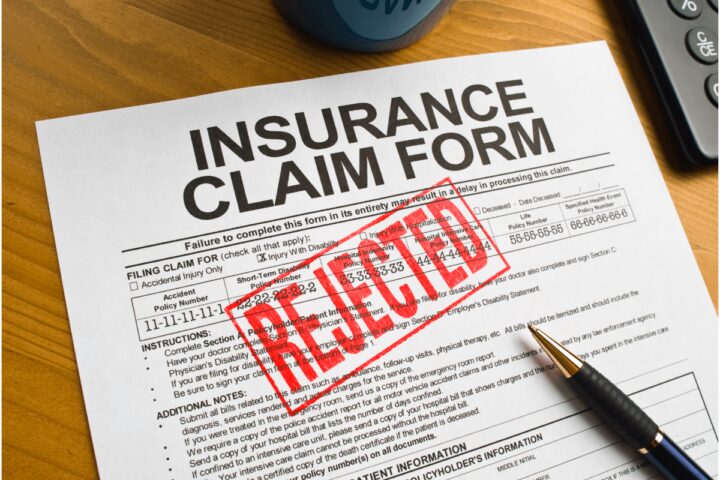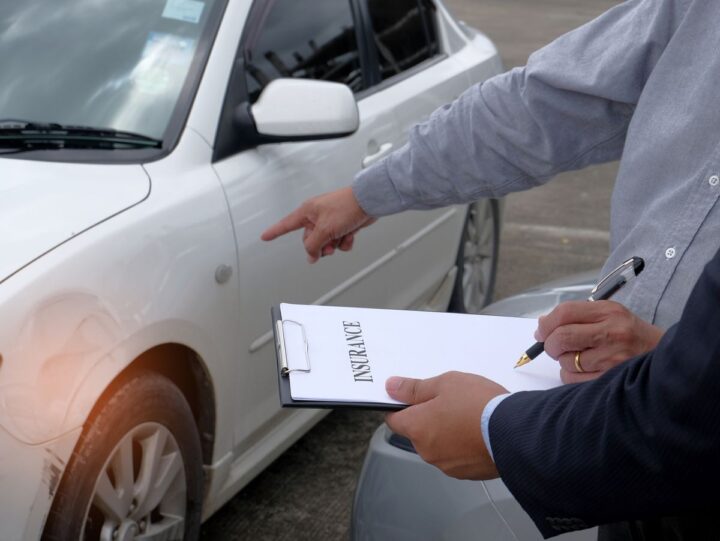Car accidents happen all the time. A car wreck, even a minor collision, can be frightening and overwhelming. For one, the incident may leave you with physical injuries, trauma, or confusion.
If you’re involved in a car accident while in Salt Lake City or other areas, it’s essential to file a claim on your insurance provider or from the other driver’s insurer to get compensation for the financial and physical harm you sustained.
But what if, after waiting for days for compensation, you get a denial instead? What can you do? This article shares critical steps and available options you can consider when your car accident claim is rejected.
1. Demand Answers

Generally, most car accident victims are shocked and upset after their claim is denied, especially by their own insurance provider. What makes things worse is that most denials come with little to no explanation, and you’re often left uncertain about what went wrong.
However, getting a big fat ‘no’ doesn’t mean you have to accept it. You can demand an explanation from your insurance provider. To do this, send a demand letter to ask your insurance provider to explain the grounds for their decision properly. Their response can provide valuable insight into your options to fight a claim denial.
That said, an insurance provider typically denies car accident claims for the following reasons:
Your Insurance Policy Doesn’t Cover The Accident In Question
Filing a claim for damage that you specifically excluded or lack coverage for will result in claims denial.
You Have Unpaid Premiums
Your claim will be denied if you still have unpaid premiums during the accident.
You Didn’t Notify Your Provider
Some policy requires you to notify your insurance provider within a certain period after the accident. Failure to do so can give your insurer a reason to reject your claim.
You Didn’t Seek Medical Attention Right Away
Getting medical attention after a crash is essential, even if you think you didn’t sustain any injuries. Some car accident injuries can take days or weeks to appear. So, if you fail to seek medical attention immediately, your insurance provider can argue that you’re not hurt or that the injury isn’t connected to the accident.
You Were Accused Of Causing The Crash
Generally, third-party insurance providers will try to shift the blame on you. They may state that you caused the crash and dismiss your claim.
You Don’t Own The Car
If you got into an accident with someone else’s car, then your insurance provider may deny your claims since the vehicle in question isn’t the one they cover.
2. Appeal The Denial

Generally, when an insurance provider denies your claim, they provide instructions on how you can appeal the decision. However, when you file for an appeal, you need to give a solid reason and evidence to support your dispute of their decision.
To do this, be specific about why the evidence contradicts their decision to reject your compensation claim. Moreover, when gathering evidence, there’s no such thing as too much information. Thus, you want to include as much relevant data as possible to support your case, including pictures of your injuries, damages to your personal belonging, and the scene of the accident.
In addition, you should also include a copy of medical records, doctor’s notes, medications, and police reports. Share witness statements, car dashcam recordings, or CCTV footage around the accident scene. Each piece of evidence is critical to fighting against an insurer’s denial. This is particularly true if the insurer rejects your claim because they believe you’re at fault for the accident.
3. File A Bad Faith Insurance Claim

Just because you appeal doesn’t mean that the insurance provider will change their decision on your case. However, they still should be open for negotiation if you support your argument with evidence. Otherwise, taking legal action against your insurance provider is suitable if you feel they’re acting in bad faith, violating your state’s insurance regulations, or simply bullying you into giving up a claim.
Bad faith insurance refers to an insurance provider’s attempt to back out on its obligations to its clients–whether by refusing to pay a valid claim or processing a claim within an unreasonable period. It’s also considered bad faith if they make unreasonable demands to prove the claim or fail to disclose policy exclusions and limitations to their client.
So, if an insurance provider continues to reject your claim despite all the evidence you provided or you suspect they’re acting in bad faith, you should confront them immediately. Generally, you’ll need the help of an expert lawyer to determine what’s considered bad faith and assist you in pursuing this type of legal action.
To help increase your success, document and keep notes of any conversations you have with your insurer during the process. Take note of the names of the agents you speak to and the dates or times of your conversations.
4. File A Lawsuit Against The Other Driver

Suppose your insurance claim was denied for reasons such as having no coverage. In that case, you could still file a lawsuit against the other driver, especially if they were responsible for the accident.
If you go this route, hiring a reliable lawyer to help you prepare and build a strong case can be to your advantage. Although, note that most minor car accidents don’t necessarily need to proceed to trial. Generally, once you get a lawyer, they can help you negotiate with the responsible driver to get you a good settlement. However, if needed, a lawyer can help take your case to court to get the compensation you deserve.
Final Words
Getting into a car accident and filing a claim can be a stressful process. It’s even more frustrating if the insurance company denies your claim. However, you don’t have to accept the denial and force yourself to resolve the financial consequences of the accident on your own. You can turn a rejection into a settlement by trying any or a combination of the options mentioned in this post.




